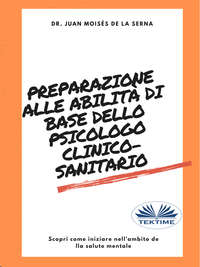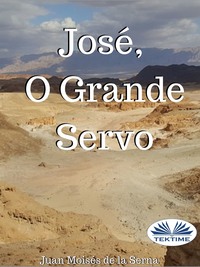
Полная версия
Fatima: The Final Secret
Smiling as he went into the sitting room, I heard Dad say:
“That’s good, better to stay that way for a long time.”
<<<<< >>>>>
It was the last week of work. The group of bricklayers, as we liked to call each other, had to finish everything, summer was ending fast. As for our summer vacation, it was almost over as well, and we were going to take advantage of the last few days to enjoy, as someone put it, “a well-deserved rest.”
We approached the little house, the one we were so proud of, it was indeed our work. Even though we only came at first to try to patch up the roof a little, we ended up tiling it and fixing those holes that had been letting the rain water easily pass through since who knows when. Then, seeing that we were doing so well, we continued, and continued. We fixed the walls, we also put in a new floor in the room where they slept, which had only been cement and some of it was in a very bad state.
At the place where we bought the materials, the owner told us:
“I have some tiles piled up over there, they’re uneven, the ones that have been left over, do you want them? I can give them to you for a good price.”
A little sad, we answered that we would like to buy them, but we didn’t have money to pay for them. We told him that if he gave them to us, then the place would be left empty, and that way we would be doing him a favor, he would have the whole area cleared so he could put whatever he wanted there.
The man thought about it for a moment and said:
“Boys, you’ve been cheating me all summer, always asking me for this broken but still useful tile, those bricks that are neglected and flaking, and that’s how you cleared me up. I have to acknowledge that, and I also know that you work for free. Look, alright, I’ll give you the tiles, and this time I’ll even take them to where you tell me, so that later you don’t tell me that I don’t treat you well.”
We were very happy loading them onto that three-wheeled scooter that he had. Old and rickety though it was, it served him very well to distribute the construction material to those who bought it. He took them to the place where we indicated. When he saw what we had done, he was pleasantly surprised.
“You boys have done this on your own?” the man asked us, “I don’t believe it.”
“Of course, with your material and also with those tips you’ve been giving us,” we answered him.
“Guys, if you want to work on this…” he began to say, but we would not let him continue.
“Nooo!” we all told him, “for vacation is enough, the school year begins soon and we’ll have to dedicate our time to hitting the books, we’ve got a lot of subjects to get on with.”
Both the owners of the house, as well as the man who had brought those tiles for us, laughed with us. He said goodbye and left in his vehicle, which, even though it was very old, still did its job well.
We put in the floor of that little bedroom with those tiles, which were a variety of colors. We tried to make a picture with them, and it stuck with us when the old lady said:
“Beautiful, I would never have thought we’d have such an elegant bedroom.”
“What if we look for a bed?” it occurred to me to say to my companions. Those four wooden posts that held up the straw mattress were already severely compromised by woodworms, and one of these days they would break and they would end up on the floor.
As it seemed like a good idea to them as well, we began the task. We had to find something very cheap, something that we could afford, although we still didn’t know how. We were all broke, as they say, and we’d been taking everything we could from what little they gave each of us from our own homes. Although they weren’t much, those reales, “For expenses,” as my mother put it, enabled us to afford the material that we needed.
Determined to complete that last task, so necessary for that elderly couple, we went to the store where they sold furniture, but there was no way. Everything was very expensive and we were just students. We didn’t have a single peseta, although each of us had already agreed to ask our families for an advance from the monthly payment, to be able to pay for it if we found something that we could afford.
With this, we were in luck once again. One of them, Antonio, did as we had agreed, and asked for this advance from his grandmother, who used to give it to him, as she told him, “For tobacco,” because he was now a man, and men are known to have their expenses. When he asked for the advance, she had wondered why he asked her for so much money at once, because she couldn’t give it to him at the time.
“Go on, tell me why you want it, is it because you’ve gotten yourself into some kind of trouble? What do you need so much money for?” she asked him when she saw that he had been disappointed by her refusal.
He didn’t want to tell her, but you know how grandmothers are, when they want something, they get it. He told her a little about what we were doing. She was surprised, because she had her grandson pegged for a party animal, and that had her a little worried, and every once in a while she would say:
“Young Antonio, now that you’re on vacation, why don’t you come home for a while? I’m all by myself here, and I’ll make you the donuts you love so much.”
To which he always answered:
“Grammy, I’m going out with my friends.”
And he didn’t give her any further explanation, he just left and went days without seeing her.
She was a little sad, but he did not want to tell anyone in his family what we were doing, so he spent the summer saying he was going out with friends, without saying anything else, without giving any explanation about where he went and what he did. We even had to leave him some pants, some old shoes and a shirt so that they wouldn’t notice anything unusual in his house. He was always very careful when picking things up so that he didn’t get calluses, in case anyone in his family saw them.
What he told his grandmother resulted in us having a new bed and many more things. We could never have imagined it, and all because what her grandson had done during the summer had brought her such joy, she said she wanted to meet those people.
Antonio didn’t want to say where he was, nor give her any more information. He left almost without saying goodbye to her, because he thought he’d screwed up, and we were going to be angry about it.
When we met the next day and he told us, we told him:
“Well, I think the parties concerned have to make that decision,” and we all decided to ask the elderly couple, but we also told Antonio: “You should have taken advantage of the situation, you’ve been foolish.”
That was how we arrived at the newly rebuilt house and the couple were surprised because we were scolding Antonio and they asked us what was wrong.
Antonio told them what had happened and that his grandmother wanted to meet them. We also had to tell them about our plans to find them a bed.
“But boys, it’s not like you haven’t done enough already. Don’t bother yourselves any further, and above all don’t bother your families, who have had to spend the whole summer not being able to enjoy being with you all,” they told us in protest, surprised by what we were telling them.
“And what do I tell my Grammy now?” Antonio asked.
They looked at each other and the old man, taking the lead, replied:
“It’s not a problem for us,” he said to Antonio, “but tell her what it’s really like. We wouldn’t want her shoes to be stained with mud.”
Everyone laughed at that remark and Antonio said:
“Papa, that doesn’t matter.”
“It does,” he said very seriously, “don’t laugh, I have my reasons for saying that.”
“Sorry,” we said in unison, embarrassed.
“It’s alright, but I want you to understand that there are people who have never walked these roads, and you already know what they’re like, that’s why it’s better to warn them before they get here.”
“Don’t worry about that,” Antonio said, “my grandmother is one of those folk who like to go hiking, going up into the mountains ‘to take the air,’ as she puts it, and spending all day in the countryside.”
“Well, if she doesn’t mind, we’re happy for her to come,” the woman said.
“Let her come if she wishes,” added the old man, not really convinced.
Antonio told them more calmly:
“Well, next Sunday I’ll let her know.”
“What? Next Sunday?” I asked him. “Today, this can’t wait.”
“Whaaat?” he said in surprise. “What’s the hurry? How am I going to do that?”
“Look, if she comes and sees the situation, and she helps us, well, better for it to be as soon as possible, right?”
“What would I say? What excuse would I use?” Antonio asked, worried about the step he had to take.
“Look,” I said, “didn’t you tell us that you left almost without saying goodbye? That you didn’t want to say anything else? Well, you go and tell her that you’ve thought about it and that it seemed to you that the way you left was wrong, you’re going to ask for her forgiveness. I think that would please her, don’t you think?”
“Well, I’m sure she’d like that,” he said, although it was obvious that he wasn’t very convinced.
“And at the same time you tell her that a friend of yours likes donuts a whole lot. Let’s see if she makes you an extra one and you can bring it to me,” I whispered quietly, but everyone heard, which prompted unanimous laughter:
“You’re a greedy guy,” they told me, “you’ve always got eating on your mind.”
“That’s a good thing,” said the old lady, “eat now while you can. Over the years you lose your appetite, or even worse your teeth and there’s nothing you can do about it.”
“Come on, leave this for now,” said the husband, “let’s get to work, there’s not much time left and surely you’ll want to get away from us boring old folk.”
“Whaaat?” we all said, “but it’s been the best summer we’ve ever had.”
“You’re such jokers,” said the old lady, “you’re just saying that so we don’t feel bad. Think of all the fun you could have had with your friends, or with some girl.”
“Girls?” we said. “As if! None of them want to pay us any attention, they go out with boys in their final year, or with those who’ve already graduated, they don’t even look at us.”
With that the chat was over, we had to work, we still had something to do.
The following day, we were in for a surprise. Antonio had left early the previous afternoon because between all of us we ended up convincing him to spend some more time with his grandmother, and we encouraged him to arrive smiling and to be nice.
He went to her house, and happened to catch her as she was about to leave. She had arranged to meet a friend for a hot cocoa and to take a walk. When she saw him arrive, she said:
“Young Antonio, son, I wasn’t expecting to see you, is anything wrong?”
He told her what he had prepared, he was going to apologize for the rude way he had left.
“Ah youth, I already know, don’t you worry. Come on, since you’re here, come with me and we’ll chat a little bit. You can clarify everything you told me, I’ve been turning it over in my mind and I just don’t understand. Tell me where you’re going with your friends, it’s not true is it? Is it that you’ve got a girlfriend and you don’t want to tell me?” his grandmother asked him as they walked.
“No Grammy, really, I’m with them all the time, I’d never lie to you,” he answered, “I’ve already told you what we’ve done this summer, it’s all true, I can assure you.”
She was coaxing it out as only grandmothers know how to do, and before he knew it he was telling her everything about our secret. Well it’s not like it’s a bad thing, but as he told us later, he told her everything, or almost everything we’d done, because he didn’t know how to stop.
Distracted by their conversation, they arrived at the coffee shop where she had arranged to meet her friend. They saw from the door that she was already sitting waiting inside, because she had arrived earlier.
Leaving her there, Antonio tried to say goodbye by giving her a kiss, but his grandmother, taking him by the arm, said:
“Now, don’t you want a little cocoa? I’m sure you’ll enjoy it, warm like you’ve always liked it, and you can take it with you if you’re in a hurry, I won’t keep you any longer than necessary.”
“Well, if I’m not bothering you,” Antonio answered, “but then I have to go.”
“Son, how could you bother us?” said the friend who had been listening to him, “Let the young girls get jealous when they see us two old women accompanied by such a handsome young man,” and the three of them laughed.
When they had their cups of steaming hot cocoa, staring at her across the table, as if thinking aloud, Antonio said:
“How lucky some of us are.”
“Why?” said his grandmother curiously. “What do you mean?”
“Because you can afford these little treats,” he replied.
“Treats?” said his grandmother’s friend. “Son, this is just a hot cocoa to invigorate the body, and some days it even serves as dinner, and that way we don’t have to make anything at home.”
“Yes,” he said, “but it’s just that others can’t afford it, whether it’s this or anything like it, even if they’re dying of cold, or of hunger.”
Now in a serious tone, his grandmother told him:
“Listen son, I’m going to tell my friend what you’ve told me, I think she needs to know, to see if we can do something.”
“No Grammy, no please,” he protested, “I’ve only told you for you, you can’t tell anyone.”
“Yes, please let me, you can tell me not to continue, to stop, whenever you want, but I think I should do it.”
And before he could convince her not to say anything, she began to tell her friend about everything, or almost everything, that her grandson had confided to her.
To his surprise, looking at him, her friend said:
“Son, tomorrow we’re going to see the situation those people are in, to see how we can help them out.”
“What for?” he asked, with a very serious tone, because all of this was going down very badly with him.
“Well, what else? To help them in whatever way we can,” the lady replied.
When he was telling us earlier that day, the elderly couple said:
“They’re going to come here? But we don’t have anything to give them.”
“Nana, Papa, that’s not why they’re coming,” I told them and they relaxed a little.
Then, when we saw them appear mid-morning, we were all shaking. “What would happen?” I wondered.
It was a very interesting visit. Antonio’s grandmother and her friend told us that they’d had some trouble getting there, that they had almost lost their way, but hey, they made it in the end. What’s more, they did not come empty-handed, they brought some donuts that tasted heavenly to all of us, and the elderly couple brought them some food.
After resting for a little while, sitting there on those logs that we were also quite used to by that point, they told us to leave them alone with the elderly couple. We went off to finish doing four things that we still had to finish, so we let them talk quietly.
They had come to help and boy did they help. They provided them with a new bed and a new mattress. Well, it was all second-hand, but it was almost new. In addition, they looked to see what else those people needed, and as a result they brought them some chairs and clothes, especially coats, some blankets and I think some kitchen utensil too.
They told us that they belonged to an organization that helped the needy, and through them they were also provided with food, which they brought for them once a week, even though we almost lost contact with them, because upon starting the academic year we had to dedicate ourselves to our student assignments.
We tried to help those people as much as we could that summer, and even if a million years passed, I don’t think any of us “Bricklayers” will ever forget that wonderful experience. There were other summers, yes, but that was the first, at least for me.
<<<<< >>>>>
One day, we were resting, sitting on some logs that were there at the door of the house, and the old man began to talk to us while we ate those sandwiches that we had brought from our homes, and that we enjoyed so much, given how tired we were.
He sat with us and as if he were thinking aloud, he suddenly told us that he had been a soldier in his youth.
“Really? Where? In the civil war?” we asked curiously.
“No boys,” he said, “I’m very old.”
“Then where?” we asked again.
“In the Cuban war,” he answered quietly.
“Whaaat?” we all said in surprise. “But that was a long time ago.”
“Yep, I told you, I’m very old,” he answered and he remained very thoughtful, no doubt remembering those times.
Our curiosity wouldn’t leave him to his thoughts and we immediately asked him:
“Then you’ve crossed the sea? Tell us, tell us.”
“Sure, twice,” he told us, “one way, and fortunately back again, because others who were less fortunate than I was went over there and stayed there forever, they never returned.”
“And tell us, what was that like?” we all insisted with curiosity.
“Very pretty,” he said, “well, the place, not the war. It was always sunny, although sometimes we were so hot that we could hardly stay on our feet.”
He was telling us, but you could tell he was reliving it in the meantime.
“Such exaggeration!” said Jorge and immediately added: “Sorry.”
“No son, when it’s so hot, the body becomes dehydrated, and we didn’t have water, well, not even food. Also, bear in mind that we weren’t accustomed to that kind of heat, to the kind of high temperatures they had over there,” he said with a sadness in his eyes.
“Then why did you tell us before that all of that was pretty?” he asked.
“Well, because it didn’t rain like it does here.” Ending the talk, he was starting to get up and we said to him with curiosity:
“More, more, don’t leave us hanging.” Now that he had started, he had to tell us more things.
“Well, there’s nothing more, we had to retreat,” he told us.
“How did they win the war?” we asked him curiously.
“Wait, don’t you study those things? Then what do they teach you in school? That we went on to win it? We lost it, but I didn’t stay until the end. I had more luck. I was wounded and being on the right no longer served them, well, that’s what I think anyway. The fact is that they brought us all back a few months before the end of the war on a ship full of sick people. Well, there were sick and wounded people, and none of us were needed there anymore. Actually, we were a nuisance. A ship came from Havana to Spain to bring more soldiers and instead of making the crossing empty, it came full of those who would be useless in battle, who only ate what little food they had there, or at least that’s what we thought. They didn’t tell us that, but there are things you don’t need to be told to know.”
He suddenly fell silent; it was plain to see how he remembered those painful times. We were all silent, expectant. He took a breath, and continued talking.
“Here, the most serious cases were allocated to different hospitals. Of course, just the ones who made it back, because some fell by the wayside.”
The old man was silent and looking at the ground with deep sadness. He continued, saying:
“Both family and friends.”
“Family? Did you also have a relative with you?” Antonio asked curiously.
“Yes, we’d gone as three cousins. We wanted to leave the town so we enlisted, thinking that it would be easier, that there would be no danger. Yes, it was a war, we knew that, but nobody told us that there were other worse things there,” he was telling us all, but when he got to this point, we became aware of the upset tone in his voice.
“What worse things?” I asked, surprised. “What could be worse than a bullet?”
“Well, diseases, you can’t protect yourself against those, and those struck us more than bullets and decimated us without warning. One of my cousins died of a fever within a few days and the other came back on the boat with me also sick, but he didn’t make it, he succumbed on the journey. So out of the three of us who left, I’m the only one who can tell you about it.”
“And what did they do with those who didn’t make it?” Simón asked without being able to contain himself.
“Well son, what do you think they did? They tossed them overboard for fish food,” he said quietly and his eyes filled with tears.
“Whaaat?” we said. “No way! And nobody protested?”
“But how were they going to transport them with the time it took to get back?” and he stopped talking for a while.
Surely he was remembering all that he had experienced on that terrible voyage.
We remained silent so he would continue, but his wife who had approached him to listen to him said:
“Yes, but thanks to that we met one another. As the saying goes, ‘Every cloud has a silver lining.’ Come on, stop remembering the sad stuff, which doesn’t do you any good.”
“Really?” we asked curious. “But surely there’s more, come on, tell us, tell us.”
Also sat on another log and seeing us sitting there, she began to tell us:
“I was helping out in a hospital. At first I swept and scrubbed the floor, but one day they didn’t have enough hands to tend to all the soldiers that had arrived, and a doctor told me:
‘Young lady, drop that broom and come here right now, I need you, run.’”
“Surprised, I looked around me, thinking he was talking to someone else, but when I didn’t see anyone else, I went over, and before I knew it, he took my hand and put it on a bloody rag, applying pressure to stop the blood flowing from a wound.”
“When I saw the blood I almost fainted, but the wounded man lying there, looking at me and smiling, said:
‘Thank you pretty girl,’ and it was he who then passed out.”
“I was all scared and I told the doctor:
‘He died.’”
“‘No, stay here, he’s not going anywhere, press hard.’”
“‘How is he going to go anywhere if he just died?’ I asked the doctor, because I hadn’t understood what he’d meant.”
“‘He only fainted from the pain,’ the doctor said, smiling, ‘but right now I’ll stitch up that scratch and you’ll see, in two or three days you’ll be walking around out there together.’”
“I noticed how my whole face turned red with embarrassment, and I said quietly:
‘What are you saying?’”
“‘You’re both young, are you not? If I were a few years younger, I would also ask you if you’d like to take a walk with me, but I don’t think it’s appropriate anymore. We have a lot of work to do here.’”
“None of this seemed serious to me and I tried to leave. When I made a gesture to remove my hand from the rag, the doctor pushed my hand down hard on the wound saying:
‘Be careful, if you don’t keep pressing down, he could bleed out. Press down hard, he doesn’t feel it.’”
“Alright, I’m not telling you any more. That wounded soldier is this husband of mine, and that doctor seemed to be a fortune teller; he was right. As for the soldier, after the stitches they gave him; go on, show them.”
“What did you say dear?” the husband asked in surprise, not expecting his wife’s request.
“Yes, yes,” we said with curiosity. Faced with our insistence, he couldn’t refuse us.
He rolled up his sleeve as far as he could and we saw a large scar. It started near the elbow and ran up his arm, disappearing under the sleeve of his shirt, which hid the other end.
As the old lady had stopped talking, Simón, who was the most curious, asked:
“And you got married? You have to tell us what happened next, you can’t leave us hanging like that.”
“Of course, what do you think? Well, it wasn’t immediately because he returned home and we had to wait a bit,” she said looking lovingly at her husband, “but we finally managed.”








